You don’t need any previous experience to get started in social work. Many of the skills required for this job are transferable from other industries and can be developed through experience, on-the-job training, and further education. Social work is a challenging career, but it can also be gratifying. Working as a social worker involves helping people with their day-to-day problems in an organization or institution such as a hospital, nursing home, school, or NGO. Therefore, a strong resume is essential to getting your first social work job or internship. This sample resume will help you create a document that showcases your experience, education, and skills, so you stand out from the competition when applying for positions.
Social Work Resume Example

Download This Social Work Resume as PDF
Clinical Social Worker Resume Example
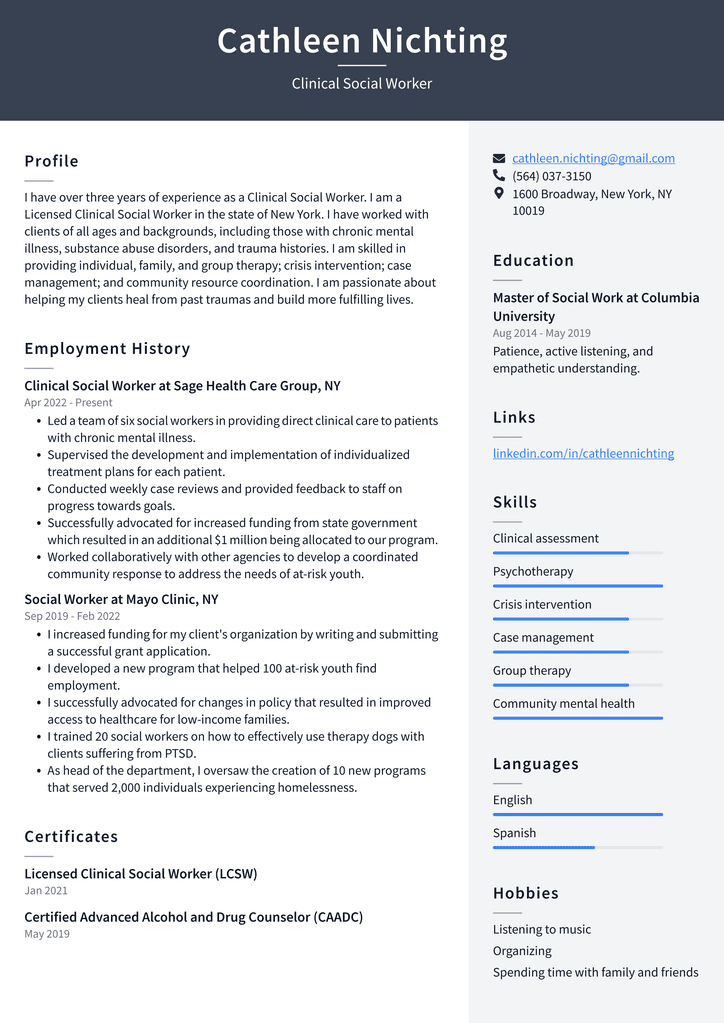
Download This Clinical Social Worker Resume as PDF
Child and Family Social Worker Resume Example
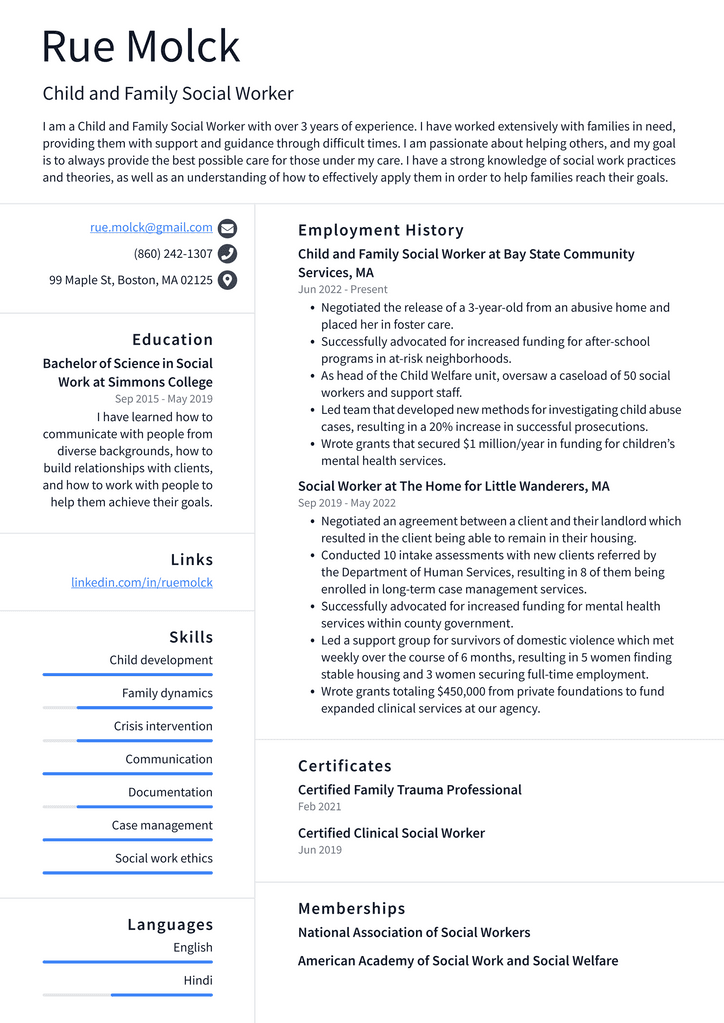
Download This Child and Family Social Worker Resume as PDF
Mental Health Social Worker Resume Example
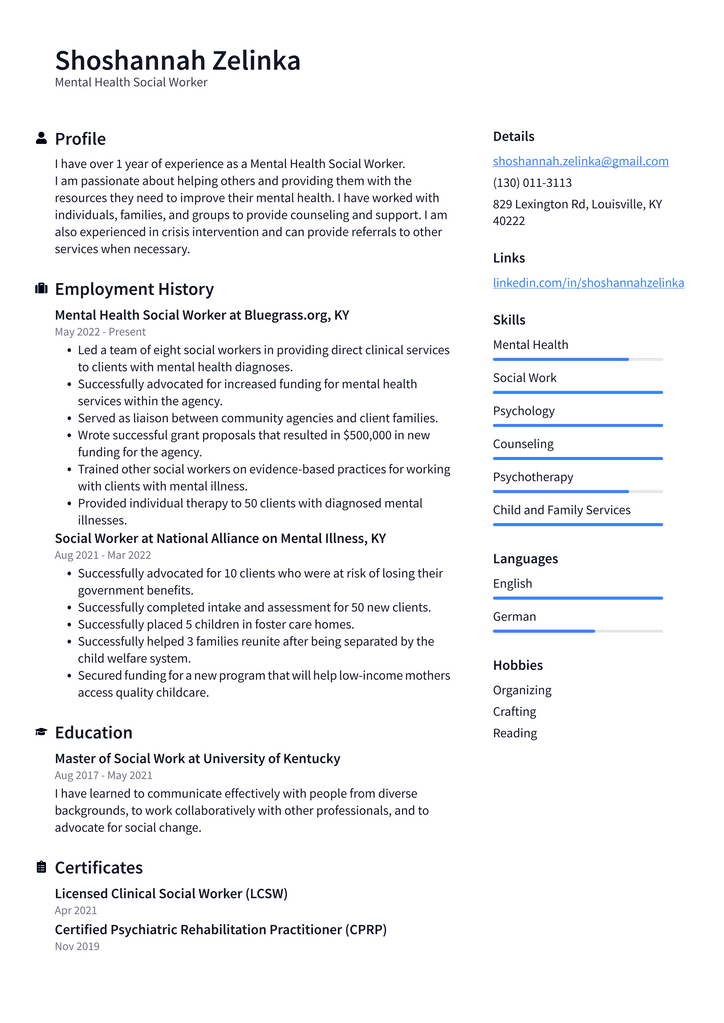
Download This Mental Health Social Worker Resume as PDF
Substance Abuse Social Worker Resume Example
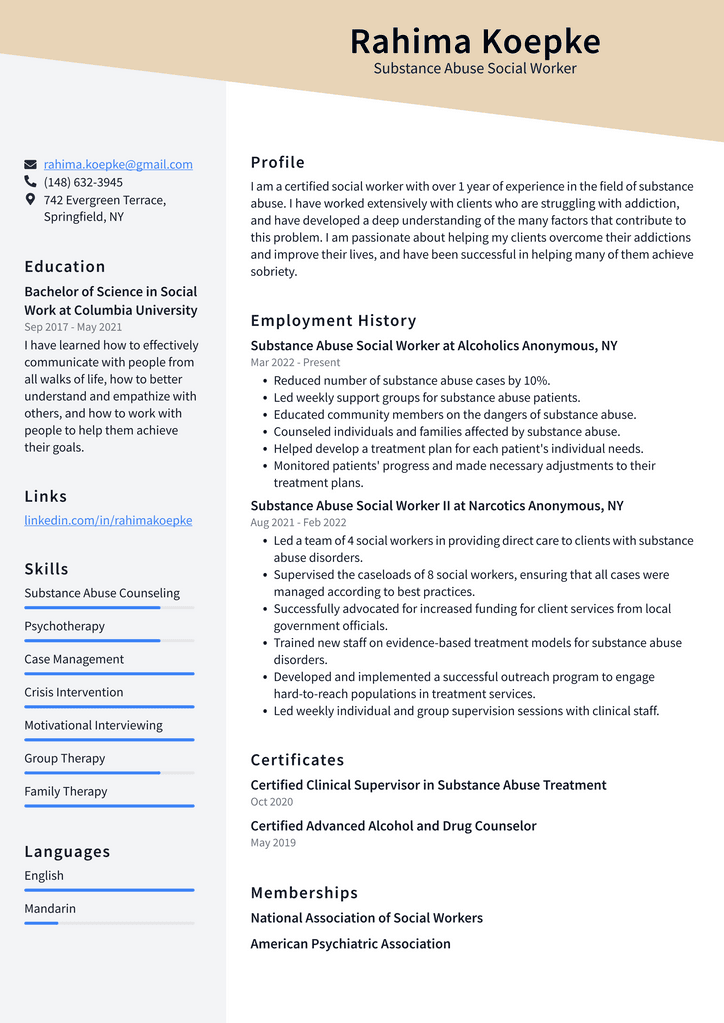
Download This Substance Abuse Social Worker Resume as PDF
Medical Social Worker Resume Example
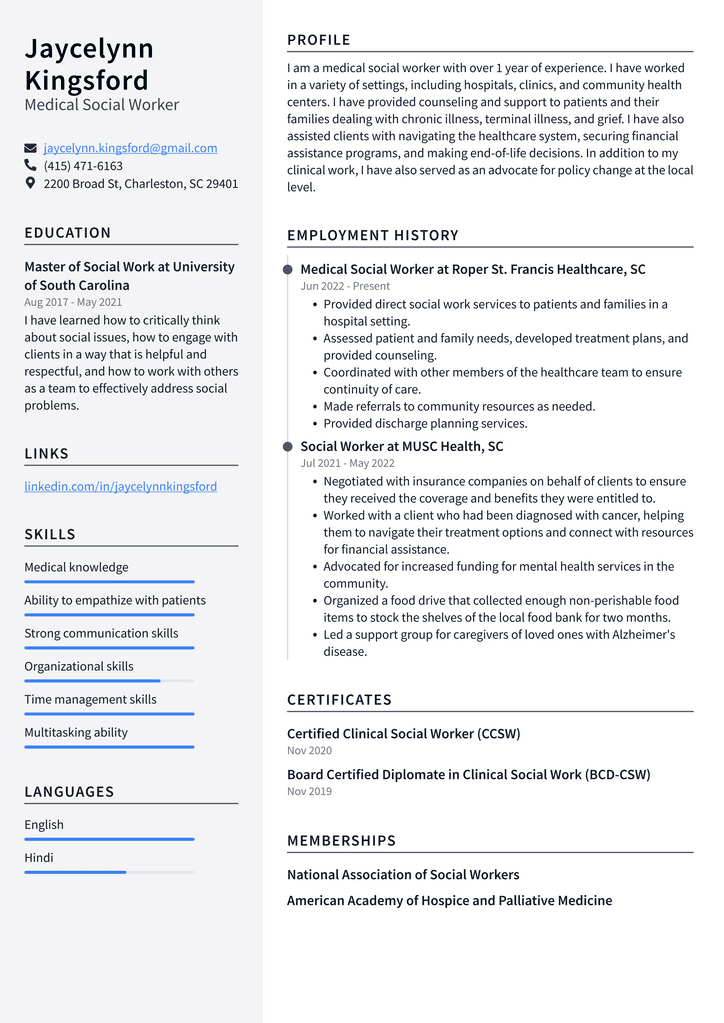
Download This Medical Social Worker Resume as PDF
School Social Worker Resume Example
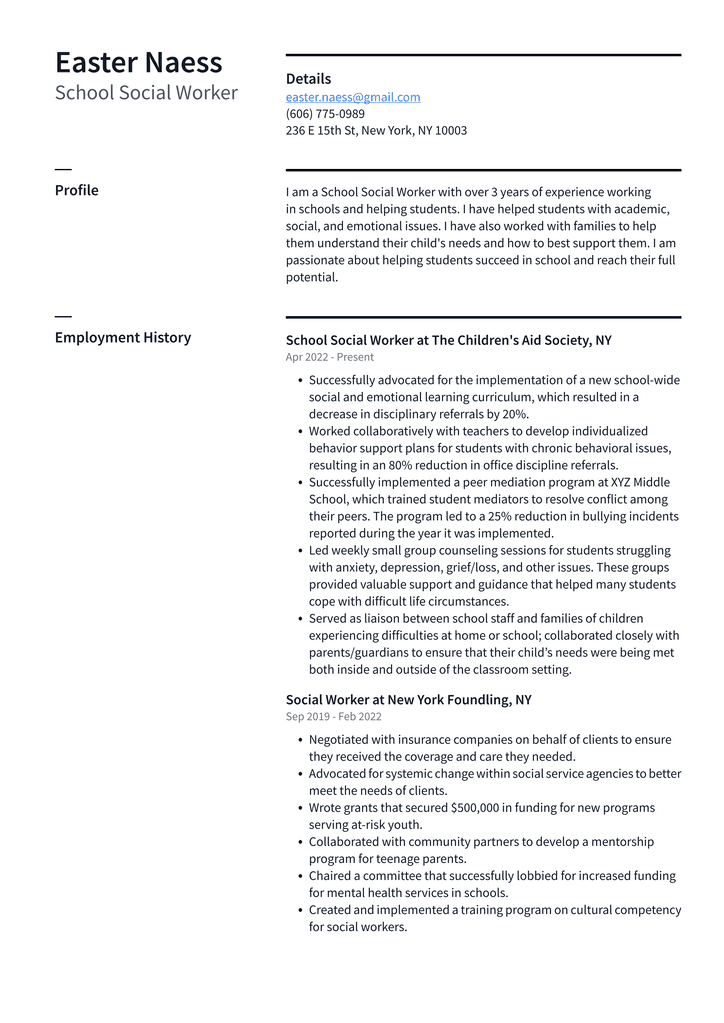
Download This School Social Worker Resume as PDF
Resume Basics
There are two main types of social work resume: the chronological and the functional format. The chronological format lists your experience in reverse chronological order, starting with your current or most recent position. The available design organizes your qualifications by skill set so that you can emphasize the most relevant parts of your experience. Keep these tips in mind when writing your resume: Your resume should be no longer than one page. It should include the name of the organization you’re applying to and your contact information.
Education
Education is one of the essential parts of a social work resume. Include your degree and major, the university’s name, and your graduation date. If you don’t have a bachelor’s degree in social work, you can still pursue a career in this field as a Licensed Baccalaureate Social Worker (LBSW) or Licensed Associate Social Worker (LASW). These are licensure credentials available in most states that require an associate degree or coursework equivalent to a bachelor’s degree in social work. If you are pursuing a social work degree, make sure to list the types of courses you plan to take. For example, if you are studying child welfare, list “Child Welfare” as a course in your education section. This will show employers that you are prepared for the realities of the job and that you have a focused path toward a career in social work.
Experience
Your experience is essential to your resume, so you’ll want to include as much relevant information as possible. Start with your current or most recent position, and then list your other jobs in reverse chronological order. Ensure each class is listed along with the organization’s name, title, and dates of employment. You can also include non-paid work related to the field, such as volunteer work. Another way to fill out this section is to include your transferable skills. For example, if you’re applying for a child welfare caseworker position but have worked as a cashier before, you can list “cashiering” under “work experience” on your resume.
Skills
The skills section of your resume shows employers that you have the qualifications necessary for the job, but it can be tricky. To ensure this section is effective, you need to show employers that you have the skills you claim to have by providing examples from your life and work experience. Examples of skills useful in a social work resume include crisis management, counseling, case management, research, and people skills. You can also have computer skills like word processing, spreadsheet use, and online database navigation. This section is also where you can list professional certifications relevant to the job you’re applying for.
Professional Certifications
Professional certifications demonstrate to employers that you have the skills and knowledge applicable to the position. They also show that you’ve invested in your education and development, meaning you’re likely to be a reliable, hard-working employee. Some examples of valuable certifications for a social work resume include Certified Caseworker, Certified Social Work Associate, Certified Professional in Healthcare Risk Management, Certified Fraud and Abuse Investigator, Certified Fraud Investigator, Certified Public Accountant, and Certified Financial Planner. Since most employers expect you to have these certifications, you must include them in your resume. Be sure to list the certificate’s name and the organization that issued it. You may also want to have a certification level, such as “Senior” or “Expert.”
References
Finally, don’t forget to include a list of references at the end of your social work resume. This section is where you can provide the names and contact information of people who can vouch for your work ethic, experience, and skill set. For example, suppose you’re applying for a position in child welfare. In that case, you can list supervisors’ or coworkers’ names and contact information who can speak to your skills and abilities. It’s also a good idea to include the name and contact information of your current or most recent employer. This lets the employer know you’re willing to give a reference and are eager to be contacted.
Conclusion
Creating the perfect social work resume takes time and effort. It’s essential to tailor your resume to each job you apply for, which makes a one-size-fits-all resume impossible. Instead, you need a carefully constructed document highlighting your skills, experience, education, and desire to work in the field and contribute to the world. A strong resume is the first step toward landing a job in social work.